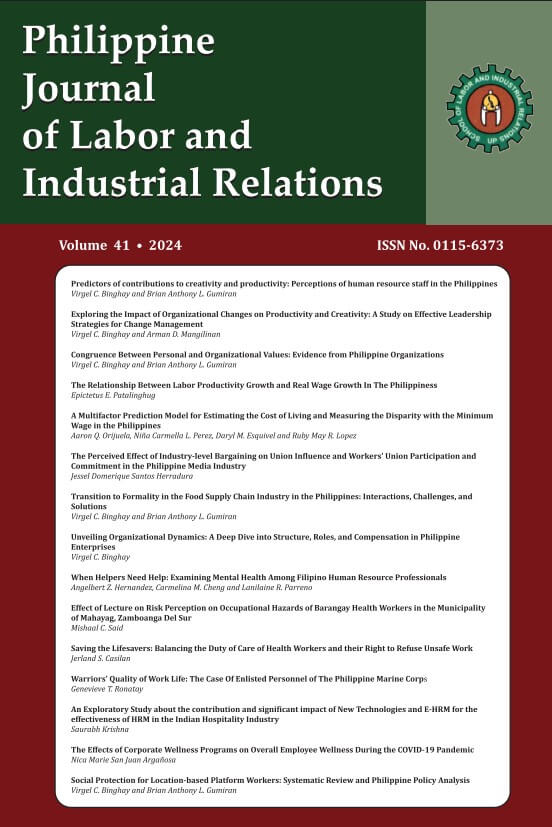The Effects of Corporate Wellness Programs on the Overall Employee Wellness During the Covid-19 Pandemic: Some Exploratory Evidence from the Philippines
Abstract
A corporate wellness program (CWP) is a make-or-break component for organizations, especially with the onset of the Covid-19 pandemic, emphasizing on the priority of making employees healthy and productive. This pandemic swiftly revolutionized into an unprecedented global economic and labor market turmoil, with a tremendous impact on the world of work, especially the Philippines, the most affected country in Southeast Asia. This paper examines the different components and effects of corporate wellness programs, including forms of communication, level of participation, and recommendations. This study also explores the driving forces, conceptualization, experiences, and perceived effects on employees as shared by human resource practitioners in-charge of CWP. It adopts the strategic choice framework to reinstate the role of management’s strategic decisions in initiating fundamental change in the organization through its CWP. It implores the qualitative method– focus group discussion (FGD) among five Filipino organizations’ survey respondents and key informant interviews (KII). The key informant interviews created the mini case studies to provide local examples of wellness programs. The identified components that mostly revolve around physical, mental, and socio-emotional wellness were similar between the two data collection methods. All the data collection methods determined similar positive effects such as increased motivation and engagement and enhanced productivity. The interview and FGD recorded feeling overwhelmed and pressured and thinking about the fear of missing out as an adverse effect of CWP. For the survey respondents, most recommendations geared on physical wellness while FGD participants leaned on mental health breaks, flexible work hours, and more wellness options to choose from, which has a more significant impact on their wellbeing. The key informants were keen about having an integrated wellness program that is targeted and personalized to the employees’ ever-changing needs. This study reinstates the role of management’s strategic decisions in initiating fundamental change through its corporate wellness programs.


